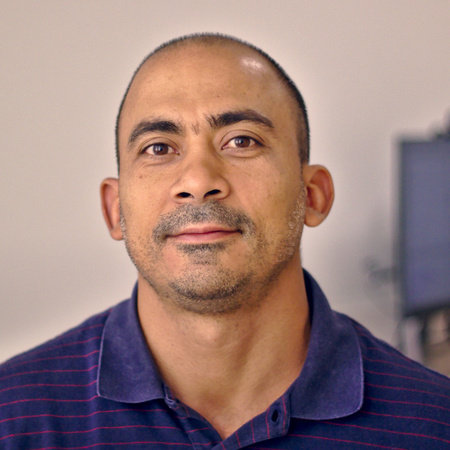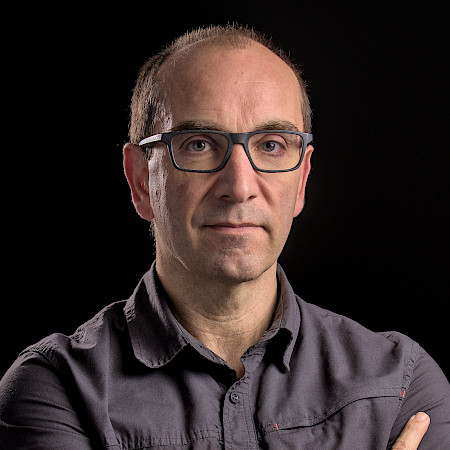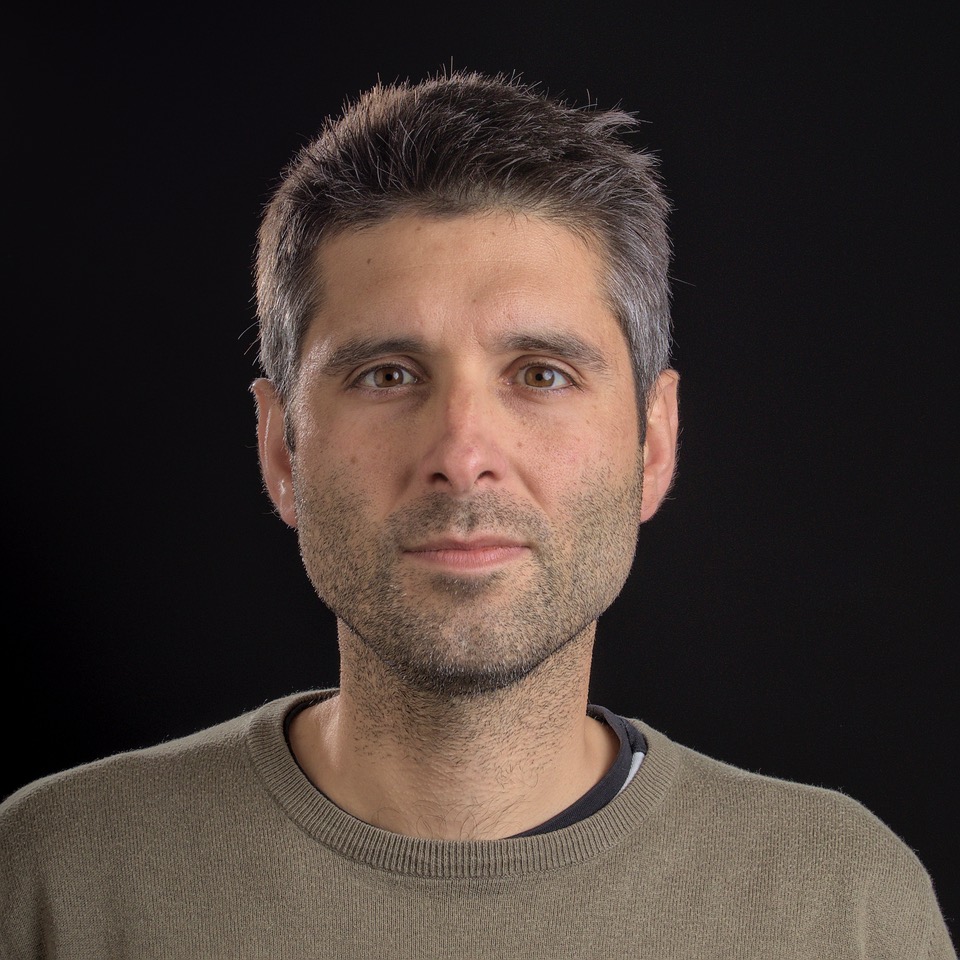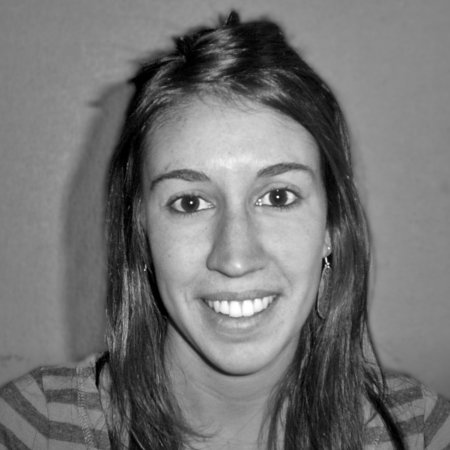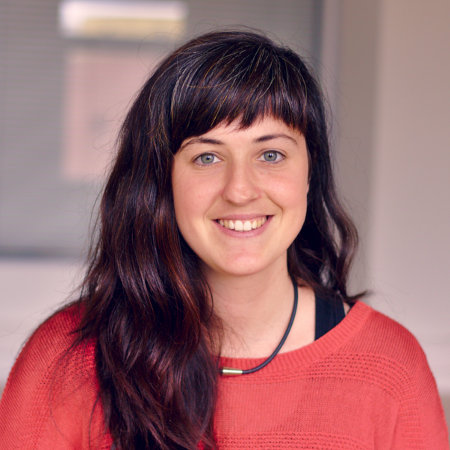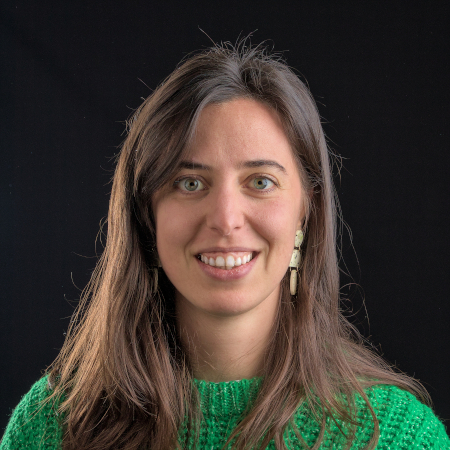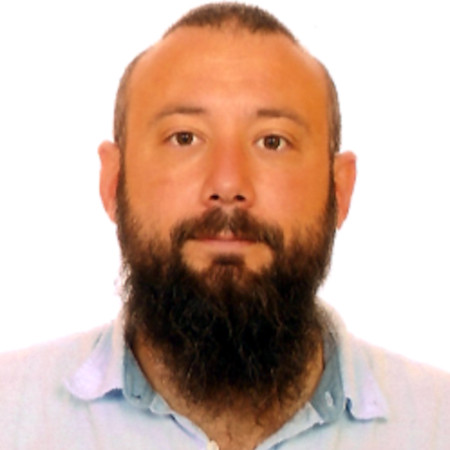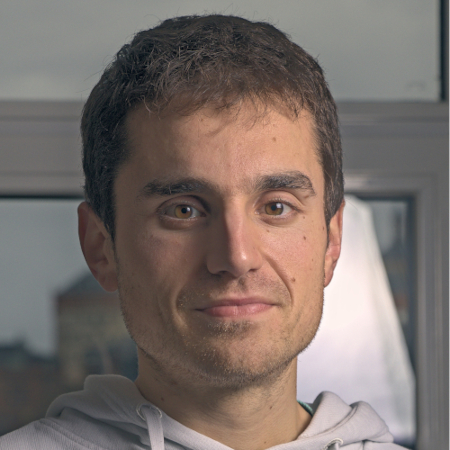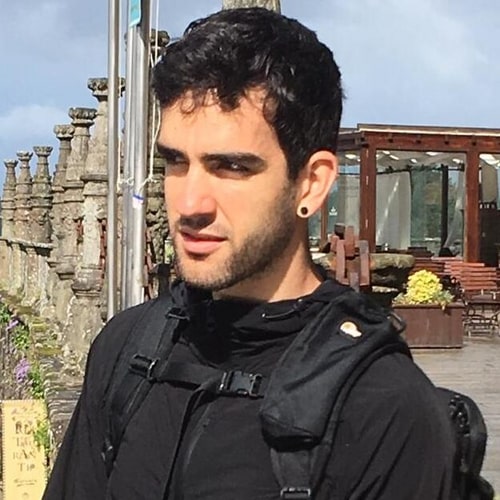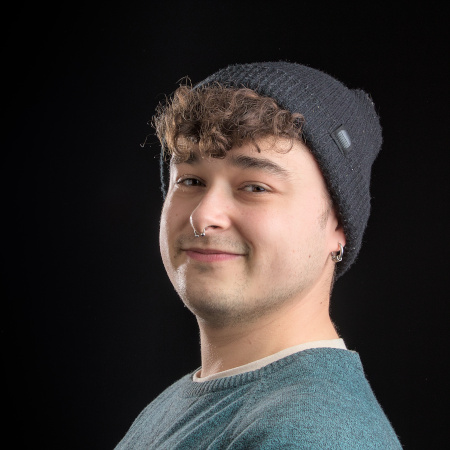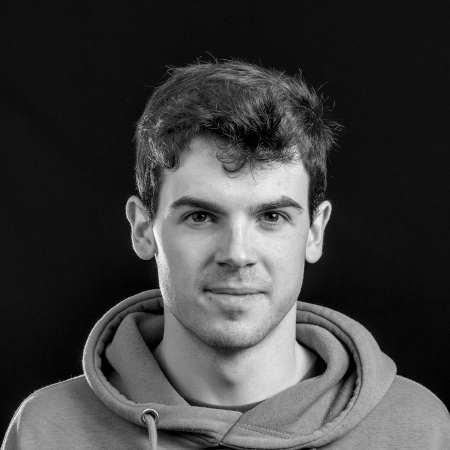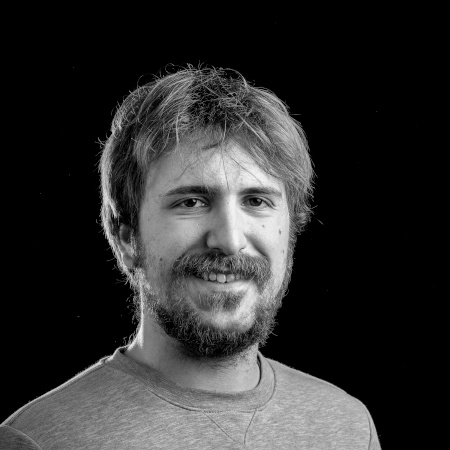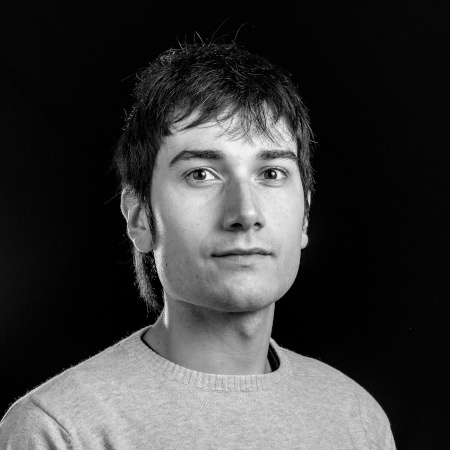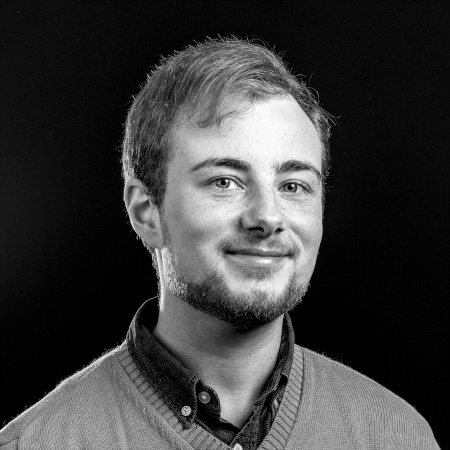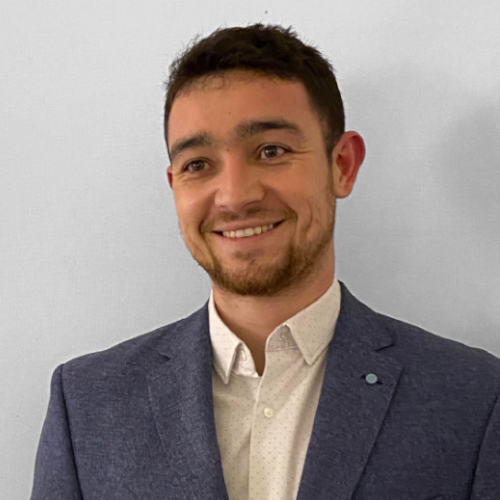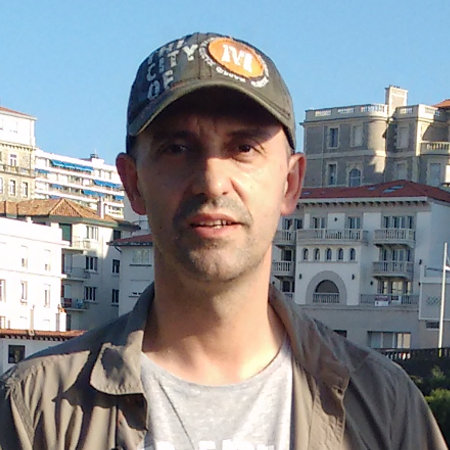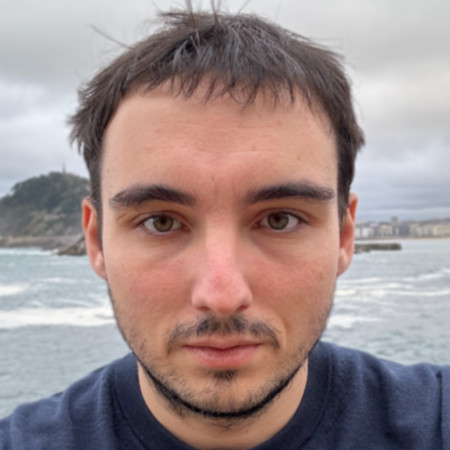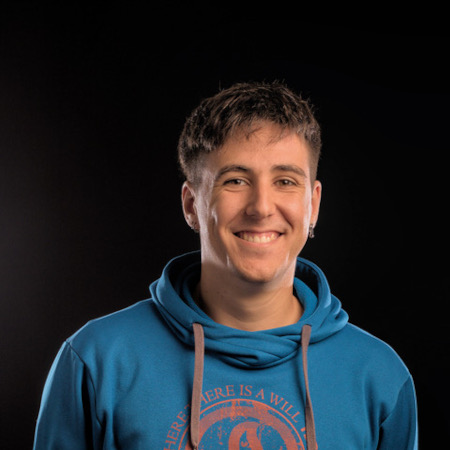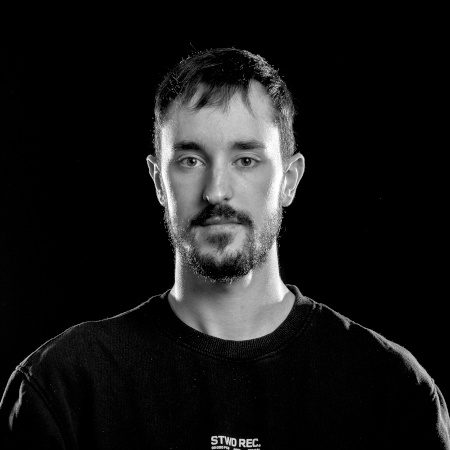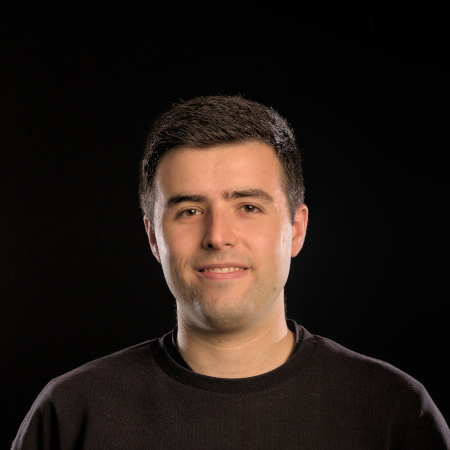
Machine Learning · Deep Learning · Optimization · High Performance Computing

Predictive Modelling · Clustering · Deep Learning · Applications

Metaheuristics · Evolutionary Computation · Estimation of Distribution Algorithms · Applications

Parallelization · Heterogeneous Computing · Quantum Computing · Quantum Networks and Communications · Interconnection Networks · GPUs
Jose A. Lozano Alonso
Facultad de Informática
Paseo Manuel sde Lardizabal, 1
20018, Donostia / San Sebastián
Gipuzkoa, Spain
+34 943 01 5034
+34 943 01 5090
ja.lozano@ehu.eus
My research interests are in the field of Statistical Machine Learning and Combinatorial Optimization. Particularly in Machine Learning we pursue the design and evaluation of new classification paradigms and algorithms able to produce predictive models which can be applied in different fields such as medicine, bioinformatics, ecology, etc. On the other hand, in the Combinatorial Optimization field we develop new heuristics and metaheuristic algorithms able to find a balance between quality of the solution and computational time, study their properties from a theoretical point of view and apply in the solution of real problems.
+34 943 01 50 34
+34 943 01 50 90
ja.lozano@ehu.eus
Dr. Alexander Mendiburu is a full professor at the department of Computer Architecture and Technology, school of Computer Science, University of the Basque Country UPV/EHU. His main research areas are Evolutionary Computation, Probabilistic Graphical Models, Time Series, and Parallel Computing.
+34 943 01 50 20
+34 943 01 50 90
alexander.mendiburu@ehu.eus
Roberto Santana received the M.Sc. degree in Computer Science from the University of Havana, Cuba, in 1996. He received a Ph.D. in Mathematics from the University of Havana in 2005 and a Ph. D. in Computer Science from the University of the Basque Country, in Spain, in 2006. He is a Tenured researcher at the Intelligent Systems Group (ISG), Department of Computer Science and Artificial Intelligence, University of the Basque Country, Spain. Roberto Santana's research interests comprise the use of probabilistic graphical models in evolutionary algorithms and the application of machine learning methods to problems from bioinformatics and neuroinformatics. He has published over 25 papers in international journals, more than 60 papers in international conferences, and is the editor of one book devoted to the use of Markov networks in evolutionary computation. He has participated in several projects funded by the Basque Government, the Spanish Ministry of Science and Technology, and the European Union. He is also a professor in the Master program "Computational Engineering and Intelligent Systems" of the University of the Basque Country.
+34 943 01 85 56
+34 943 01 50 90
roberto.santana@ehu.eus
I receieved my master's degree in Biochemistry from the Univesity of the Basque Country in 1999 and, after two years working, I took a bachelor's degree in Computer Science at the same university. In 2004 I earned the bachelor's degree and in 2008 the PhD in Computer Science. After two years as a Post-Doc researcher at the Intelligent Systems Group, in 2011 I won my current lecturer position at the Department of Computer Science and Artificial Intelligence of the University of the Basque Country. Currently I am leading a reseach project funded by the DGT (spanish traffic agency) aimed at the prediction of car accidents in the basque road network. I am also supervising three PhD students and severl master thesis.
+34 943 01 50 13
+34 943 01 50 90
borja.calvo@ehu.eus
I'm a Professor at the Department of Computer Architecture and Technology of the School of Computer Engineering of the UPV/EHU. I am a member of the Intelligent Systems Group research group. My teaching and research areas are Parallel and distributed computing and Computer networking. I focus my research on parallel and distributed computing, with particular interest on interconnection networks for parallel systems
+34 943 01 80 19
+34 943 01 50 90
j.miguel@ehu.eus
Josu Ceberio is member of the Intelligent Systems Group at the University of the Basque Country since 2010. He received his Ph.D. degree in Computer Science from this university in 2014. Since 2014, he is associate professor at the University of the Basque Country, first in the department of Applied Mathematics, later in the department of Languages and Computer Systems, and currently, in the department of Computer Science and Artificial Intelligence at the Faculty of Computer Science. His main research areas are evolutionary computation, permutation-based combinatorial optimization problems and probability models on rankings.
+34 943 01 71 19
+34 943 01 50 90
josu.ceberio@ehu.eus
Usue Mori received a BSc degree in Mathematics, a PhD in Computer Science in 2010 and 2015, respectively. Currectly she is an associate professor at the university of the Basque Country UPV/EHU in the Department of Applied Mathematics, Statistics and Operational Research. Her main research interests include clustering and classification of time series, and she has also worked in practical applications in the area of traffic modeling.
+34 946 01 79 08
+34 943 01 50 90
usue.mori@ehu.eus
Libe Mori received her bachelor degree in Electronics Engineering and a PhD in Physic Engineering in 2014 and 2019, respectively. Currently she is an associate professor at the University of the Basque Country UPV/EHU in the Department of Computer Architecture and Technology. Her main research interests include neuromorphic computing and design of digital circuits for FPGAs.
+34 943 01 5051
+34 943 01 50 90
libe.mori@ehu.eus
Javier Navaridas is a Ramón y Cajal Research Fellow with the University of the Basque Country. The Ramón y Cajal fellowships are highly competitive and he ranked 3rd out of 107 candidates in the ICT area. Javier's career focuses on the design and architecture of different computing systems and their impact on the speed of application execution, as well as on interconnection networks. In the predoctoral stage, several mechanisms were proposed to improve the performance and efficiency of supercomputer and data center networks. During his time at the University of Manchester he was part of the team that designed and built SpiNNaker, one of the first neuromorphic systems. The complete system is made up of more than a million processors and its architecture is aimed at low consumption and fault tolerance. Later, Javier was a key person in the ExaNeSt and EuroEXA H2020 projects in which an Exascale architecture was developed, based on reconfigurable devices (FPGAs) as calculation and communications accelerators for low-cost ARM processors. Javier also has experience in the design of photonic network architectures, initially with microring resonators and later with Mach-Zehnder interferometers. More recently Javier has expanded his research scope to cybersecurity where different cryptographic techniques for IoT systems have been studied, as well as intrusion detection systems. As part of his research work he has built a broad network of international collaborators in various industrial and scientific areas.
+34 943 01 5085
+34 943 01 50 90
joseantonio.pascual@ehu.eus
Unai Garciarena received his bachelor degree in computer science in 2015, before obtaining his masters degree in computer engineering and intelligent systems, in 2016, both in the University of the Basque Country (UPV/EHU). His principal research interests are data preprocessing, supervised classification, and optimization.
+34 943 01 80 70
+34 943 01 50 90
unai.garciarena@ehu.eus
In 2010 Aritz Pérez obtained his PhD entitled Supervised Classification in Continuous Domains with Bayesian Networks. He was researcher at the Department of Computer Sciences and Artificial Intelligence from 2010 to 2014 as a member of Intelligent Systems Group. In 2011 he was lecturer at the Department of Lenguajes and Information Systems at the University of the Basque Country. Since 2011, he has been invited lecturer in the Master of Computational Engineering and Intelligent Systems of the University of the Basque Country. Since 2014, he has a postdoctoral fellow at the BERC institution Basque Center of Applied Mathematics (BCAM). His research of interest includes supervised and unsupervised classification, probabilistic graphical models, feature subset selection, model selection and evaluation, ecological modeling, genetics and epigenetics.
+34 946 56 78 42
+34 943 01 50 90
aritz.perez@ehu.eus
+34 946 56 78 42
aperez@bcamath.org
Ekhine Irurozki holds a permanent possition in Telecom Paris. She has been a Post-Doc researcher since she received her PhD in 2014 at the Computer Science school until 2020. She is affiliated to the Intelligent Systems Group at the Basque Country University. She is currently involved in a research project on real-time prediction of car crashes at the Basque road network, founded by the Spanish traffic agency (DGT). She is particularly interested on probabilistic reasoning on permutations, area in which her thesis was developed. Moreover, she has worked in several optimization problems.
Leticia Hernando received the M.Sc. degree in mathematics from the University of the Basque Country in 2009. She is member of the Intelligent Systems Group at this university since 2010, and she received her Ph.D. degree in Computer Science in 2015. Her research interests include evolutionary computation and permutation-based combinatorial optimization problems.
+34 943 01 80 57
+34 943 01 50 90
leticia.hernando@ehu.eus
Daniel Rodriguez is currently an associate professor at the Computer Science Department of the University of Alcala, Madrid, Spain. In the past, he was lecturer at the University of Reading (2001-2006), as well as a seasonal lecturer until 2010 at the MSc in Network Centered Computing covering the Data Mining and Information Retrieval module. Daniel earned his degree in Computer Science at the University of the Basque Country (EHU) and PhD degree at the University of Reading, UK in 2003. His research interest include data mining and optimisation techniques in general and their application to Software Engineering in particular.
+34 918 85 69 33
+34 943 01 50 90
daniel.rodriguezg@uah.es
daniel.rodriguezg@uah.es
Jose Luis Flores received an MSc degree in Computer Science from The University of the Basque Country. He is a PhD student in The University of the Basque Country and a member of the Intelligent Systems Group research team. His research interests are preprocessing in machine learning, and optimization. Nowadays, he also works as a researcher at IK4-Ikerlan, a international R & D technology centre and it is part of IK4 Technology Alliance.
34
+34 943 01 50 90
Diana Carrera received her bachelor degree in Computer Science from Faculty of Computer Science at the University of Havana in 2012 and two years later she finished her masters degree in Applied Mathematics from the same university. Diana finished her PhD in 2021.
+34 943 01 80 12
+34 943 01 50 90
dianamaria.carrera@ehu.eus
César Montenegro received his bachelor degree in computer science in 2009, before obtaining his masters degree in Industry applied computer engineering research, in 2012, both in the Complutense University (UCM) in Madrid. His principal research interests are anomaly detection, unsupervised classification, and semi-supervised classification. He finished his PhD in 2023.
+34 943 01 80 70
+34 943 01 50 90
cmontenegro002@ikasle.ehu.eus
Iker Beñaran obtained his Bachelor's Degree in Mathematics at the University of the Basque Country (UPV/EHU) in July 2015. He finished a Master's Degree in Computational Engineering and Intelligent Systems a the same university in September 2016. He is currently a PhD Student at ISG. His research interests are weak supervision and crowd learning.
+34 943 01 80 12
+34 943 01 50 90
iker.benaran@ehu.eus
+34 946 56 78 42
ibenaran@bcamath.org
Maialen Murua received a Bachelor's degree in Mathematics at the University of the Basque Country in 2014 and a Master's degree in Computational Engineering and Intelligent Systems in 2016 at the same university. She did an intership in 2016 in Tecnalia to conduct her Master's thesis in the application of Machine Learning techniques to industrial processes. Currently, she is a Computer Science PhD student at Tecnalia. Her research interests include Discrete Optimization and Stochastic Processes.
+34 667 11 97 23
maialen.murua@tecnalia.com
Amaia Abanda Elustondo received a BSc degree in Mathematics at the Autonomous University of Barcelona (UAB) in 2013 and a masters degree in Computational Engineering and Intelligent Systems at the University of the Basque Country (UPV/EHU) in 2015. She worked as a software developer in Urolalde and in 2016 she was granted a Global Training scholarship by the Basque Government in order to research on Computer Vision at Pattern Recognition and Applications Lab (PRALab), University of Cagliari (Italy). Currently, she is a PhD student at Basque Center of Applied Mathematics (BCAM) and a member of the Intelligent Systems Group at UPV/EHU. Her research interests include time series classification and kernel methods.
+34 943 01 80 70
+34 943 01 50 90
amaia.abanda@ehu.eus
Ander Carreño received her bachelor degree in Computer Science from the University of the Basque Country in 2016. One year later he obtained his masters degree in Artificial Intelligence from the Politecnic University of Madrid. Since 2018 he is a PhD Student at the Intelligent Systems Group. His research interests includes supervised and unsupervised classification of temporal and non temporal data, model selection and evaluation, and feature subset selection.
+34 943 01 80 70
+34 943 01 50 90
ander.carreno@ehu.eus
Anne Elorza received her bachelor degree in Mathematics from the University of the Basque Country in 2016. The next year she received her masters degree in Computational Engineering and Intelligent Systems from the same university. Currently she carries out her research in Combinatorial Optimization as a PhD student in the University of the Basque Country.
+34 943 01 80 70
+34 943 01 50 90
aelorza026@ikasle.ehu.eus
Borja Molina received his bachelor degree in computer science in 2015 before obtaining his master degree in computer engineering in 2017, from the Technical University of Valencia (UPV) and the University of the Basque Country (UPV-EHU) respectively . He worked as a security researcher in a cyber-security company for 2 years. After that, he joined ISG in 2018 as a PhD student on the area of network security. His principal research topics include the application of machine learning techniques to network data, with special interest in behavior modeling, anomaly detection and unsupervised classification.
+34 943 01 80 70
+34 943 01 50 90
borja.molina@ehu.eus
Maitena Tellaetxe obtained her bachelor degree in Biomedical Engineering from the University of Navarra in 2013. She received her masters degree in Bioinformatics for Health Sciences from Pompeu Fabra University in 2015 and a second masters degree in Computational Engineering and Intelligent Systems from the University of the Basque Country in 2016. Currently, she is a PhD student at Biodonostia HRI and a member of the Intelligent Systems Group at UPV/EHU. Her research interests include the application of machine learning and optimization methods in cancer genomics and, specifically, cancer evolution. She is also teaching in Computer Science Faculty.
+34 943 01 80 70
+34 943 01 50 90
mtellaetxe001@ehu.eus
-
maitena.tellaeche@biodonostia.org
Imanol Unanue received his bachelor degree in Mathematics from the University of the Basque Country in 2017, and one year later his masters degree in Computational Engineering and Intelligent Systems from the same university. He is currently studying the theoretical aspects of metaheuristic algorithms as a PhD student.
+34 943 01 80 70
+34 943 01 50 90
imanol.unanue@ehu.eus
I am an Assistant Professor at the University of the Basque Country (UPV/EHU), in the Department of Computer Science and Artificial Intelligence. In 2023, I completed a Ph.D. at the UPV/EHU, under the supervision of Dr. Roberto Santana and Prof. Jose A. Lozano, in the field of adversarial machine learning. My current research interests comprise the vulnerabilities of deep learning models in adversarial scenarios, with particular attention to the audio domain and the implications of adversarial examples in explainable models.
+34 943 01 80 70
+34 943 01 50 90
jon.vadillo@ehu.eus
I am a Ramón y Cajal Research Fellow at the University of the Basque Country (UPV/EHU) and Ikerbasque Research Fellow, with experience on translating industry engineering problems into machine learning and dependability (reliability, availability, maintenance, safety) solutions. I enjoy developing condition monitoring applications to build reliable and intelligent power and energy systems. I have a special interest on renewables and smart grids with the hope to contribute to counteract climate change effects and work towards dependable and sustainable energy systems.
+34 943 01 81 51
joxe.aizpurua@ehu.eus
Andoni Irazusta received his bachelor degree in Industrial Engineering from the University of the Basque Country in 2018. Two years later he obtained two master's degrees, one in Industrial Engineering from the University of the Basque Country, and the other one in Computational Engineering from the Illinois Institute of Technology in Chicago. Since 2020 he was a PhD Student at the Intelligent Systems Group. His current research is on the use of reinforcement learning algorithms in combinatorial optimization. He obtained his PhD on 2024. He currently is postdoc researcher in our group, and part working in MeteoBit company.
+34 943 01 80 70
+34 943 01 50 90
andoni.irazusta@ehu.eus
Aitor Sánchez serves as a predoctoral researcher within the Intelligence System Group (ISG) at the University of the Basque Country UPV/EHU. He received his bachelor's degree in informatics engineering from the University of the Basque Country in 2021, followed by a master's degree in investigation and innovation in computational intelligence at the Autonomous University of Madrid a year later. Currently, his research focus revolves around employing machine learning techniques for the mining of time series data, particularly in tasks related to anomaly detection.
+34 943 01 80 70
+34 943 01 50 90
aitor.sanchezf@ehu.eus
Mikel Malagón received his bachelor's degree in Computer Science from the University of the Basque Country UPV/EHU in 2022. He obtained his master's degree in Computer Engineering and Artificial Intelligence in 2023 at the same university. Since 2023 he has been a Ph.D. student in the Intelligent Systems Group. His current research mainly focuses on the development of continual reinforcement learning agents.
+34 943 01 80 70
+34 943 01 50 90
mikel.malagon@ehu.eus
Aingeru Ramos is a PhD student at the Basque Center for Materials, Applications and Nanostructures (BCMaterials), in collaboration with the University of the Basque Country (UPV/EHU). He received his Bachellor's degree in Computer Science from the University of the Basque Country, Spain, in 2022. His undergraduate thesis focused on the use of quantum adiabatic computing for solving Linear Programming problems. Currently, in his doctoral research, he is developing a quantum version of the Markov Chain Monte Carlo method using quantum circuits, with the goal of accelerating the sampling of probability distributions, particularly the Boltzmann distribution.
+34 943 01 80 70
+34 943 01 50 90
aingeru.ramos@ehu.eus
Aitor Belenguer obtained his Bachelor's degree in Computer Science from the University of the Basque Country in 2021. He received his Master's degree in Computational Engineering and Intelligent Systems from the same university in 2022. He started collaborating with Intelligent Systems Group (ISG) in 2021 with an IKASIKER collaboration grant and continued his career inside the group working as a researcher while pursuing his MSc. Currently, he is a PhD student at the University of the Basque Country UPV/EHU and a member of ISG at the San Sebastian Faculty of Computer Sciences. His research interests include the usage of IoT devices to perform collaborative tasks; focusing on the security involved during the information exchange process, performance, and, specifically, Federated Learning.
+34 943 01 80 70
+34 943 01 50 90
aitor.belenguer@ehu.eus
Alexander Olza obtained his bachelor degree in Physics from the University of the Basque Country in 2020. A year later, he received his master's degree in Mathematical Modelling and Research, Statistics and and Computation from the same university. Currently, he is a PhD student at the Intelligent Systems Group at UPV/EHU, co-supervised by the Basque Center on Cognition, Brain and Language (BCBL). His research interests include representation learning and domain-shift problems applied to neuroscience.
+34 943 01 80 70
+34 943 01 50 90
alexander.olza@ehu.eus
Ainhize Barrainkua obtained her Bachelor's degrees in Physics and Electronic Engineering from the University of the Basque Country UPV/EHU in 2020. She received her Master's degree in Computer Engineering and Artificial Intelligence in 2021 at the same university. Since late 2021, she is a Ph.D. student at the Basque Center for Applied Mathematics (BCAM) under the supervision of Prof. Jose A. Lozano and Dr. Novi Quadrianto. Her ongoing research primarily revolves around integrating and modeling uncertainty within methodologies from the field of algorithmic fairness.
+34 943 01 80 70
+34 943 01 50 90
abarrainkua@bcamath.org
Iker García received a Bachelor's degree in Mathematics from the University of the Basque Country in 2018. During the last year of his degree, he did an internship at Iberdrola. He did his final thesis on Newton's three-body problem. He then completed a Master's degree in Visual Analytics and Big Data in 2019 at the International University of La Rioja. This time he did an internship at Ormazabal Corporate Technology to do his Master thesis on artificial intelligence techniques applied to low voltage grids, specifically looking at linking customers to feeders and consumption forecasting. Currently, he works in a data analysis team at Ormazabal and is a PhD student in Computer Engineering with a major in artificial intelligence. His research interests include mathematical modelling, control theory, reinforcement learning, and neural networks.
+34 943 01 80 12
+34 943 01 50 90
igarcia908@ikasle.ehu.eus
+34 94 630 51 30 (ext. 20165)
iri@ormazabal.com
He is working as a PhD student on probabilistic models in the Machine Learning group of BCAM. He obtained his Double Degree in Physics and Electronic Engineering (University of Basque Country) in 2019, and his Master Degree in Computational Engineering and Intelligent Systems at San Sebastian in 2020.
+34 943 01 80 12
+34 943 01 50 90
abidaurraza002@ikasle.ehu.eus
+34 946 56 78 42
abidaurrazaga@bcamath.org
Imanol Echeverría received a double degree in Computer Science and Business Administration and Management from the University of Deusto, Spain, along with a degree in Mathematics from UNED. Following this, he obtained a master's degree in computational engineering and Intelligent Systems at the University of the Basque Country. Currently, Imanol is a researcher at Tecnalia and is pursuing a Ph.D. under the supervision of Maialen Murua and Roberto Santana. His research focuses on the application of deep learning to solve real-time scheduling problems.
imanol.echeverria@tecnalia.com
imanol.echeverria@tecnalia.com
Alex Amenabar received his Bachelor's degree in Computer Science from the University of the Basque Country in 2024. He is currently pursuing a Master's degree in Computational Engineering and Intelligent Systems at the same university. His research areas now focus on neuroevolutionary algorithms for Spiking Neural Networks.
alex.amenabar@ehu.eus
Unai Fernandez received his bachelor's degree in Computer Science from the University of the Basque Country in 2022. He obtained his Master's degree in Embedded System Engineering from the same university in 2024. His research interests include Embedded Systems and digital circuits for FPGAs.
unai.fernandezu@ehu.eus
Andrea Bonfanti obtained his Bachelor degree in Mathematical Engineering at Politecnico di Milano and later specialized in Data Science during its Master in Applied Mathematics at Technical University of Eindhoven. He is located in Munich and currently pursuing his PhD at UPV in collaboration with BMW. His research interests regard anything that connects machine learning, mathematical modeling and engineering applications.
+34 943 01 80 12
+34 943 01 50 90
andrea.bonfanti@ehu.eus
+49-89-382-71196
Andrea.BA.Bonfanti@bmw.de
scmamp is an R package to perform the statistical comparison of multiple algorithms in multiple problems. It includes functions to estimate and correct p-values in comparisons of the type all vs. best and all vs. all. Regarding the all vs. all comparison, the package implements the specific methods by Shaffer and Bergmann and Hommel (usually known as Shaffer static and Shaffer dynamic), persented in García and Herrera (2008).
In addition to the p-value computation, the package includes some functions to load data from several files and functions to create plots (such as critical difference plots) and LaTeX tables.
García, S. and Herrera, F. (2008) An Extension on 'Statistical Comparisons of Classifiers over Multiple Data Sets ' for all Pairwise Comparisons. Journal of Machine Learning Research, 9, 2677-2694.
Since they were proposed in the late fifties, kernels have become an essential tool in non-parametric statistics, particularly for the problem of density estimation. However, when the support of the density function to be estimated is bounded (that of a random variable representing a ratio, for instance), classical estimators suffer from boundary effects, the non-consistency of the estimator in the boundary region being the best known effect.
This situation arises in many real-life domains such as econometrics or bioinformatics. During the last 30 - 35 years many techniques have been proposed to remove the boundary bias. bde is an R package that provides an easy to use package that includes several classical and state-of-the-art estimators that cope with the problem of boundary effects, along with a set of tools to use and visualize them.
The TSdist package implements a set of commonly used distance measures and some additional functions which, although initially not designed for this purpose, can be used to measure the dissimilarity between time series. These measures can be used to perform clustering, classification or other data mining tasks which require the definition of a distance measure between time series.
The use of synthetic data is a very common way of validating the goodness of new data mining and machine learning proposals. Specifically, in time series analysis, using synthetic data can be helpful to study the performance of the methods in different contexts and with different types of data.
The following code is designed to simulate time series databases which can be used to validate time series clustering and classification proposals. 8 different types of databases can be simulated, each of which are defined by a finite set of shapes. Furthermore, these databases can be generated with different dimensions, different levels of noise, outliers, shift and warp. The modification of these properties will give way to different databases and can be used to evaluate the behavior of the classification and clustering methods with data of different characteristics.
PerMallows is an R package focused on distance based probabilistic models for permutations. The package comes with a number of algorithm for learning and sampling Mallows and Generalized Mallows models using four different distances between permutations: Kendall's tau, Cayley's, Hamming's and Ulam's distances. Besides these algorithms, the package provides tools for manipulating permutations as well as functions to work with these distances.



